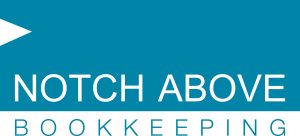The uncertainty of last year is in the rearview, but a bumpy road still lies ahead
More than ever, businesses need to understand and manage their finances to navigate the new terrain of 2021, not just to survive but thrive.
2020 lost some great companies, and the years to come will take more. So how can you begin protecting yourself and your investments when the landscape is still shifting below your feet?
Below are some essential tips to consider:
Know your tolerance for financial risk
According to Yelp.com’s Local Economic Impact Report, for more than 97,966 businesses, 2020 caught them off guard, causing them to close their doors permanently. Though traffic is picking up for some, there is no promise that revenue will get better for all businesses.
Are you ready to put it all on the line? If you are, there is success out there. If you’re not, you may need to consider a strategic pivot seriously.
OK, now that we have gotten that out of the way. Let’s move on to some positive action steps.
Build a budget
We know we can not predict what lies ahead. However, we can learn from the past, make educated assumptions, and create a budget for the possibility of a tumultuous 2021.
To help plan a tentative budget, here are a few questions you should ask:
- What was revenue like in January and February of 2020?
- How did it compare to profits in April of 2020?
- What do you experience as the pandemic restrictions ease/tighten?
- Do seasonal changes affect your revenue?
- Do you have revenue streams that continue to grow?
- Have you increased or decreased expenses during the pandemic?
No one knows what’s in store for business owners in 2021, but we do know that to survive 2021, business owners need to understand the financial basics for their business. Utilising powerful apps to build a budget will help you do just that.
Know your goals
For some businesses, making goals for 2021 might seem elusive, especially coming out of a year like 2020. However, by taking the time to define your goals, you will find the grit you need to stay in the fight.
Success isn’t by chance. Simply dreaming and hoping for growth in 2021 will not cut it.
- Tips to setting achievable goals:
- It’s still OK to dream big
- Write your goals down
- Set achievable milestones
- Share your goals
- Work on your goals daily
- Be SMART (Specific, Measurable, Achievable, Relevant, Time-bound)
Actively analyse finances
By consistently running a balance sheet and updating your financial statements, you’ll always have your thumb on the pulse of your business. There are excellent apps available on the Xero App Marketplace to do just this. If you are uncomfortable building various reports, get help from a trusted advisor like an accountant or bookkeeper who will help you understand your economic landscape.
Understand your cash flow
Businesses are showing a steady improvement in their spending outlook as 2021 gets underway. As a business owner, you need to know where to spend your money and where to pull it back.
Though a business can look successful on paper, businesses fail at an alarming rate due to cash flow. It is essential to shorten the days between spend and collection from sales. The fewer days between the two means more cash on hand and less you will need to borrow. Developing a cash flow projection will ensure you have the money to pay vendors, staff, lenders, and yourself. Here are some apps that can help.
Separate business and personal
It’s more important to separate business from personal finances in 2021. Making the separation will ensure you treat your business like an independent entity while protecting your financial circumstances with a ‘corporate veil’. This type of protection makes the company accountable for any debts or legal responsibilities rather than holding the owner personally accountable.
Save for emergencies
For lots of companies, during economic downturns, they stop serving their current customers and start desperately looking for new customers. A better approach is to produce new products and services for customers who already know and love you. Your customers will let you know how to stay in business. Consider taking the necessary steps to listen to your customers by giving them a way to connect with you 24/7. Don’t stop there. Listen to them with the intent to act. Your customers are letting you know how you can serve them better.
Remember, other companies are looking for new customers, and if you are not tending to yours, your competition will.
Focus on the future, not the past
2020 was devastating for the world in many regards, but there is still a bright future ahead. We must learn from our past, but we mustn’t stay in our past. The future is in our imagination, so why not imagine a future of possibilities. When you set your goals, budget, or strategies, be realistic but still shoot for the stars.
Be agile
Be prepared for anything; you have got to be able to think on your toes. 2021 will not give you the time to cut through red tape. If you’re too slow to open the door when opportunity knocks, it will head over to your competitor’s open door.
Become more efficient by automating redundant tasks to free up management from routine, time-consuming tasks and allow them to engage in business strategies to increase profits and customer service.
Be adaptable
Success comes to those that can roll with the punches. Many businesses failed due to their inability to be adaptable. You should be able to pivot at a moment’s notice in good times or bad. This past year we saw restaurants close in droves while others seemed to thrive. The difference was the quick adjustment to delivery and curbside service.
Showcase your differentiation
In 2021 brand connections are becoming more critical for consumers. Customers are now looking for brands they can trust and support during these challenging times.
Companies need to step up and show they are willing to provide superior customer service, operational excellence, clear and transparent communication, and affordable products. Especially in times of struggle, people are looking for assurance that good is out there.
Now is the time to shine and show others you care.
Remember your ‘why’
Most important, you have got to remember why you went into business in the first place. Do you have clarity around the ‘why’ of your business? No? That’s ok, but it’s time to figure it out. It is not about making money; that is the result. Your why should be the purpose, cause, or belief behind the reason your organisation exists. Knowing why you are in business can help you make hard choices, stay focused on your goals, and take the necessary risks needed to succeed.
The landscape is uncertain for 2021, but there is reason to be optimistic. Businesses who stimulate growth with new products and services create jobs and infuse the economy with the money it needs to recover.
Notch Above Bookkeeping are Platinum Certified Xero bookkeepers and BAS Agents. We help small business owners across Australia (including medical specialists such as dentists, orthodontists, optometrists and anaesthetists) to prepare BAS returns and streamline their bookkeeping processes, payroll and accounting records using cloud technology.
Source: Xero
#remotebusinessbookkeepers #cloudbusinessbookkeeping #xeroplatinumbookkeepers









